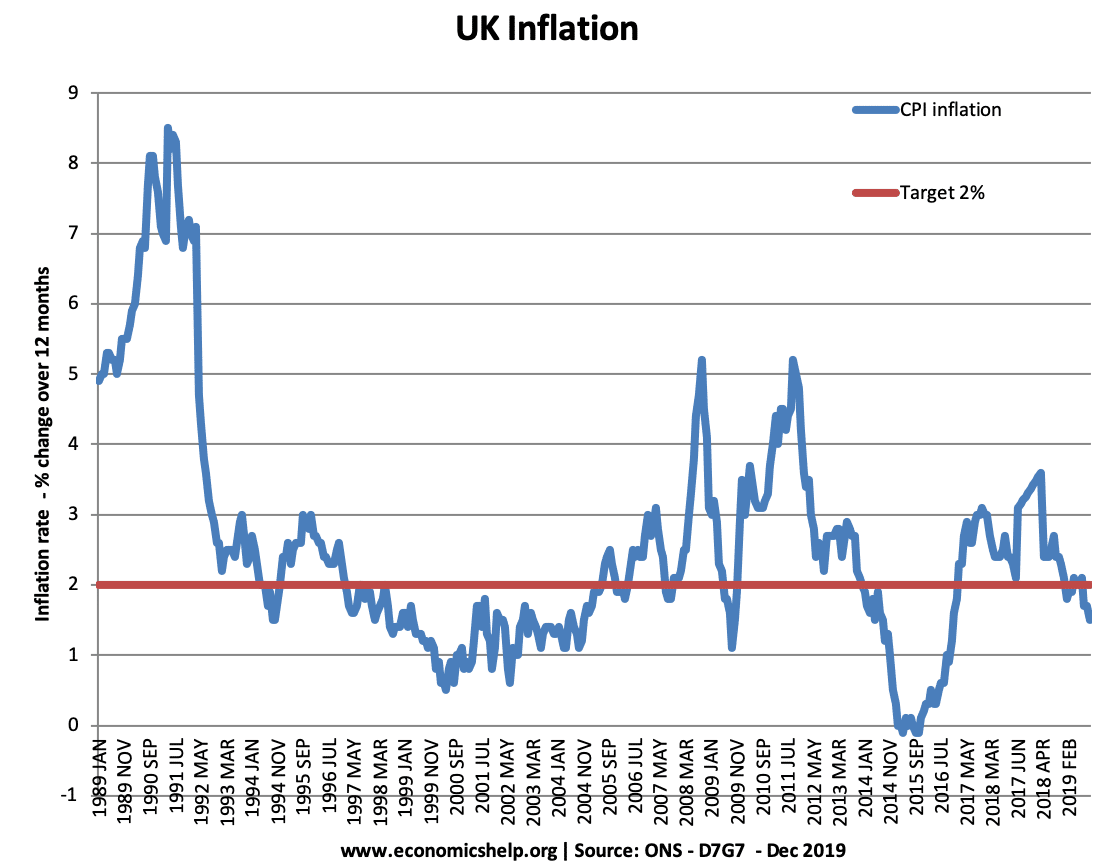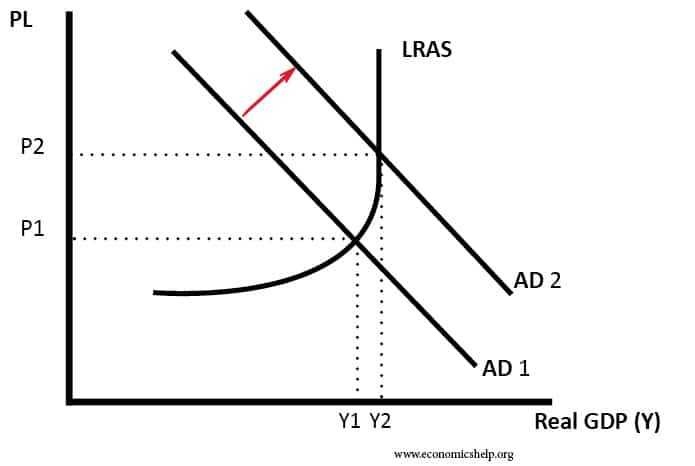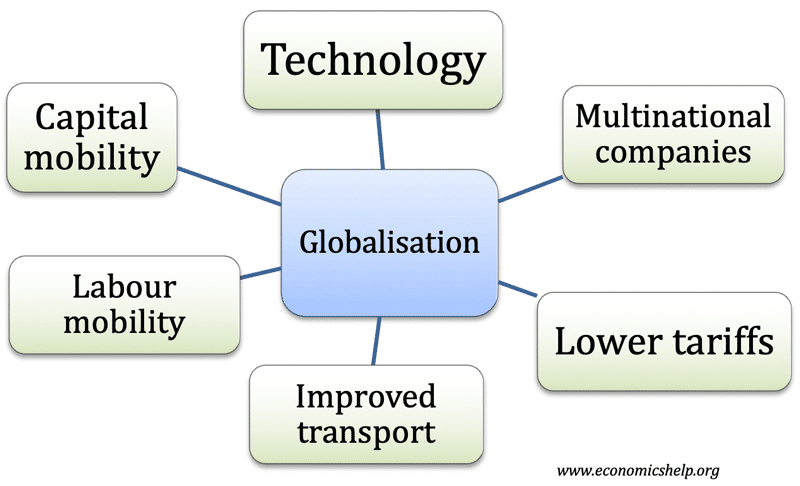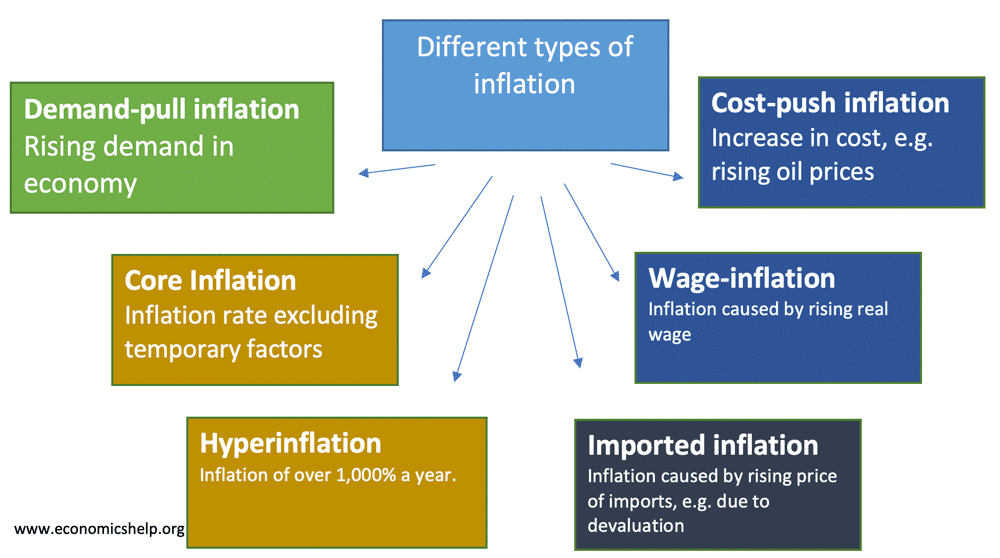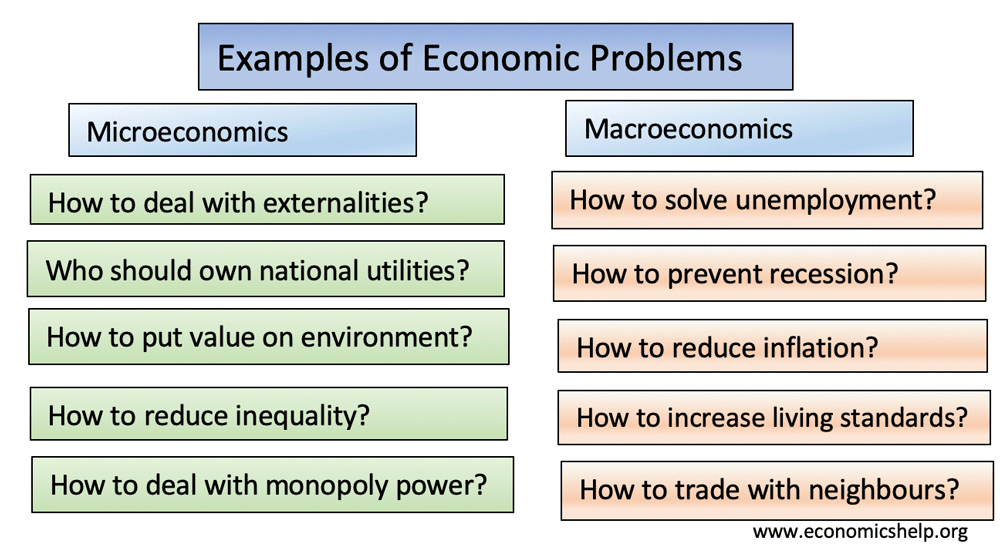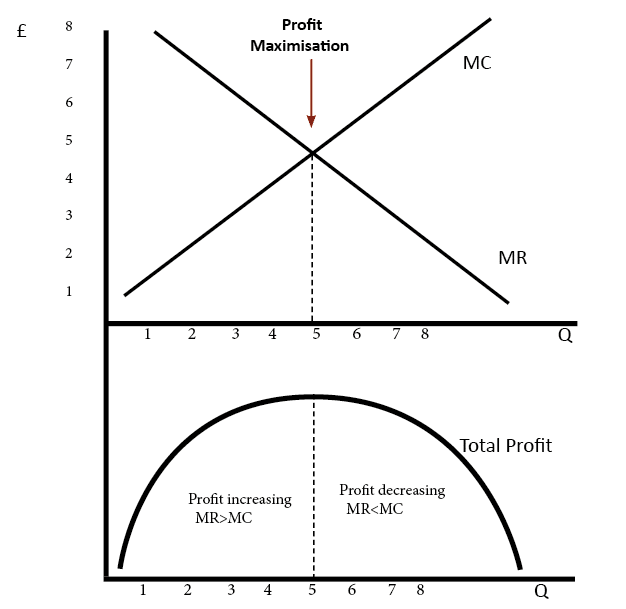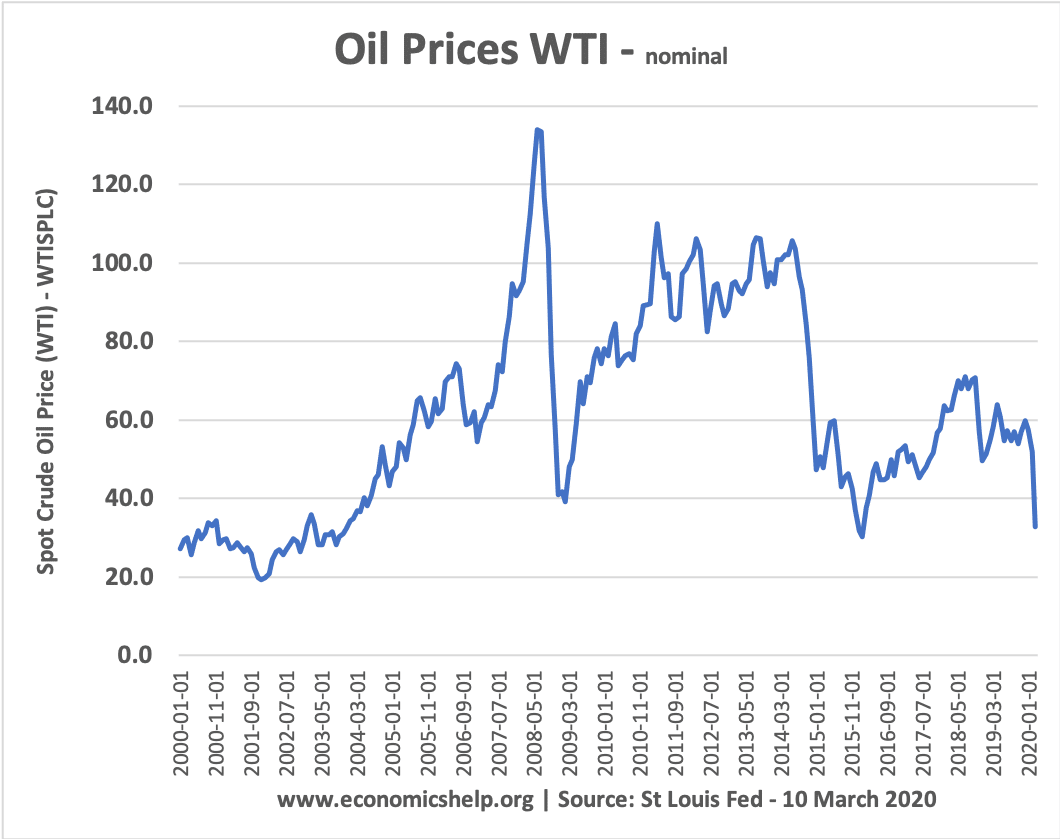Demand-pull inflation
Demand-pull inflation is a period of inflation which arises from rapid growth in aggregate demand. It occurs when economic growth is too fast. If aggregate demand (AD) rises faster than productive capacity (LRAS), then firms will respond by putting up prices, creating inflation. Inflation – a sustained increase in the price level. Demand-pull inflation – …

